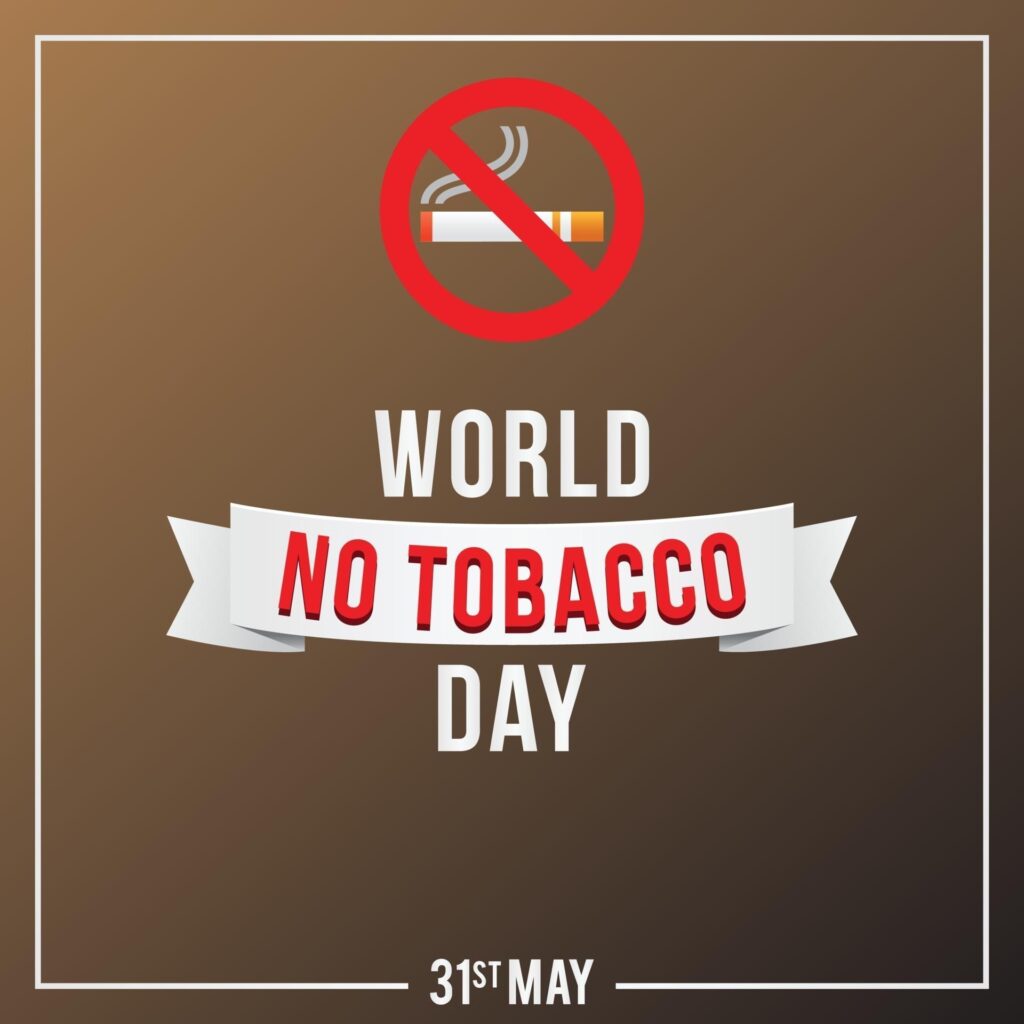Introduction:
On World No Tobacco Day, it is crucial to emphasize the dangers of second-hand smoke, especially for children. The harmful effects of tobacco smoke extend beyond smokers themselves, affecting those around them, particularly young and vulnerable individuals. This reframed article delves into ten compelling reasons why safeguarding children from second-hand smoke is of paramount importance.
- Increased Risk of Respiratory Infections:
Exposure to second-hand smoke significantly heightens children’s susceptibility to respiratory infections, such as bronchitis and pneumonia. Their developing lungs are more delicate and prone to damage, making them more susceptible to respiratory illnesses when exposed to tobacco smoke.
- Elevated Asthma Risks:
Children exposed to second-hand smoke are at an increased risk of developing asthma or experiencing asthma attacks. The harmful particles present in tobacco smoke can trigger airway inflammation and aggravate existing respiratory conditions, making it imperative to protect children from this harmful exposure.
- Long-Term Lung Damage:
The detrimental effects of second-hand smoke on children’s lungs can extend into adulthood. Prolonged exposure to tobacco smoke can lead to irreversible lung damage, impairing respiratory function and increasing the risk of chronic respiratory diseases, such as chronic obstructive pulmonary disease (COPD), later in life.
- Heightened Vulnerability to Ear Infections:
Children exposed to second-hand smoke are more prone to frequent and severe ear infections. The harmful chemicals in tobacco smoke can disrupt the delicate balance in the middle ear, leading to recurrent infections that may affect a child’s hearing and overall well-being.
- Increased Risk of Sudden Infant Death Syndrome (SIDS):
Exposure to second-hand smoke is strongly associated with an elevated risk of Sudden Infant Death Syndrome (SIDS). Infants exposed to tobacco smoke have a significantly higher likelihood of experiencing this tragic and unexplained loss of life, making it crucial to create smoke-free environments for babies.
- Impaired Cognitive Development:
Studies have demonstrated a link between exposure to second-hand smoke and impaired cognitive development in children. The toxic chemicals present in tobacco smoke can interfere with brain development, resulting in learning difficulties, decreased IQ, and behavioral problems later in life.
- Negative Impact on Cardiovascular Health:
Even brief exposure to second-hand smoke can have immediate detrimental effects on children’s cardiovascular health. It can cause changes in blood vessels, increase blood pressure, and heighten the risk of heart disease and stroke in adulthood. Protecting children from second-hand smoke is vital for safeguarding their long-term cardiovascular well-being.
- Increased Risk of Cancer:
Exposure to second-hand smoke during childhood increases the risk of developing various cancers later in life. Children exposed to tobacco smoke have a higher likelihood of developing lung, throat, and childhood leukemia, emphasizing the critical importance of creating smoke-free environments to reduce these risks.
- Influence on Behavior and Attitudes:
Children who witness smoking behaviors are more likely to perceive smoking as socially acceptable and may be more inclined to experiment with tobacco themselves. Shielding children from second-hand smoke helps create a healthier environment and discourages the adoption of smoking habits.
- Setting a Positive Example:
By protecting children from second-hand smoke, we not only prioritize their health and well-being but also set a positive example. Being mindful of our own smoking behaviors and providing smoke-free environments demonstrates a commitment to their safety and instills healthy habits that can last a lifetime.
World No Tobacco Day serves as a reminder of the critical importance of safeguarding children from the dangers of second-hand smoke. The harmful effects of tobacco smoke on children’s respiratory health, cognitive development, and overall well-being cannot be understated. By creating smoke-free environments, we can protect our children and future generations from the detrimental consequences of second-hand smoke, ensuring a healthier and smoke-free future.

